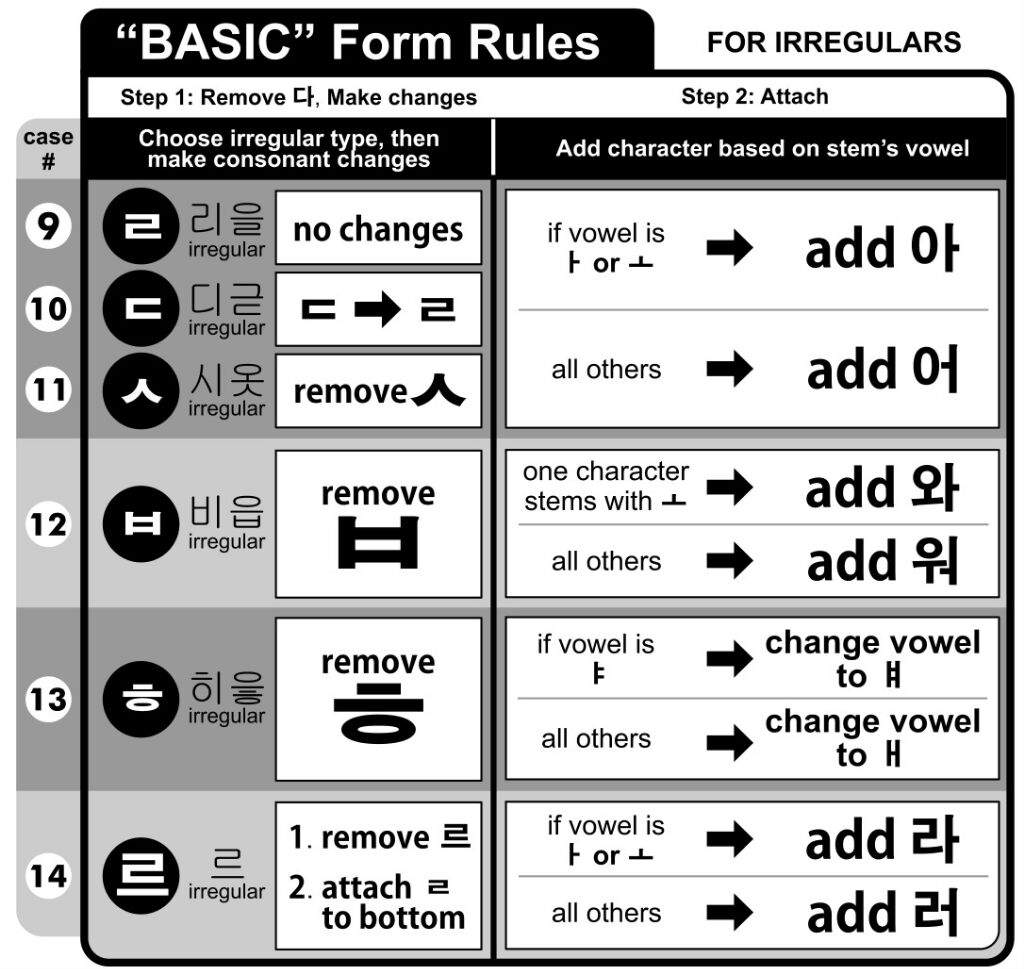

Words can also be added as flashcards and reviewed through personalized quizzes.īy watching videos on FluentU, see and hear how verbs are conjugated in action and in real-life scenarios. These videos have interactive subtitles that let you check the meaning of any word as the video plays.
#KOREAN VERB CONJUGATION MOVIE#
In this language learning program, you can watch authentic Korean videos like movie clips, music videos and news segments. You can also check out conjugations in use on FluentU.


#KOREAN VERB CONJUGATION HOW TO#
If you ever come across a verb you don’t know how to conjugate, you can always resort to using the Verbix conjugation tool. We’ll focus primarily on verbs without irregularities in their conjugation since this is a beginner’s guide. However, some verbs may change their spelling slightly when conjugated. The majority of verbs will keep their original stem spelling when conjugated. Now that you know with whom each formality is used, let’s look at the four most common tenses used in Korean. Polite high formality is used in public service announcements and when talking to people with a higher social status than you (i.e., your boss). Polite low formality is used in most everyday situations, and with people you’re unacquainted with.ģ. Casual formality is used with people younger than you and with close friends.Ģ. Here’s a quick breakdown of the three primary levels of formality:ġ. You need to add honorifics to certain words and change the way you conjugate verbs. One aspect of Korean that’s different from English is that you need to consider formality when speaking. To conjugate a Korean verb, the first step is to separate the verb stem from the 다 ending. In English, we write the infinitive as “to + verb.” However, in Korean, the verb stays the same in both cases.Īn infinitive is another name for a verb when it’s unconjugated. Unlike the Romance languages, in Korean, you don’t have to consider the subject of the sentence when conjugating verbs.įor example, in English, we say “I eat” and “she eats.” (Download) What to Know About the Subject, the Infinitive and the Formalities Subject-Verb Agreement
#KOREAN VERB CONJUGATION PDF#
This blog post is available as a convenient and portable PDF that youĬlick here to get a copy.


 0 kommentar(er)
0 kommentar(er)
